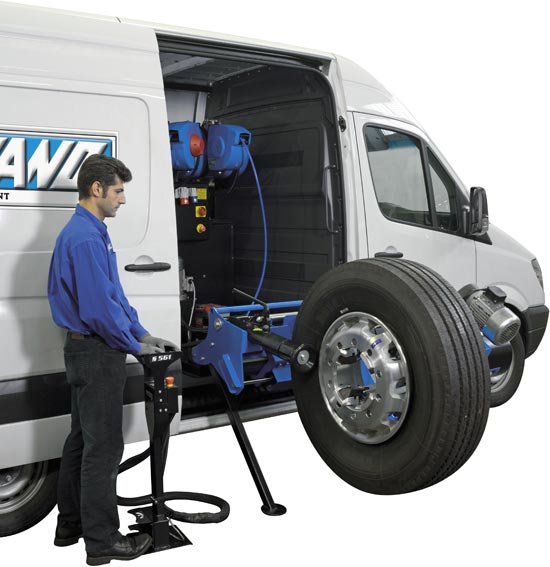Experience Precision with GMC Tire Service at Morris Tires
Experience Precision with GMC Tire Service at Morris Tires
Blog Article
Tire Solution: The Effect of Weather
When it involves ensuring optimal performance and safety and security when traveling, understanding the impact of weather condition conditions on tire service is crucial. From scorching warm to icy roads, each weather component can dramatically influence tire functionality and total driving experience. By delving into the impacts of varying weather condition conditions on tires, motorists can gain important insights that might improve their vehicle's performance and longevity. In this discussion, we will discover the complex partnership between weather condition problems and tire solution, clarifying the importance of weather-specific tire maintenance practices and factors to consider.
Heat and Tire Efficiency
When exposed to high temperature levels, tires experience changes in efficiency that can considerably affect vehicle safety and handling. The warmth created from prolonged driving or heat problems triggers the tire rubber to soften, bring about reduced walk life and enhanced wear. As the rubber comes to be softer, the tire's hold on the roadway decreases, influencing braking ranges and general grip. In severe cases, extreme warmth can even trigger tire blowouts, positioning a serious security threat to the vehicle and its occupants.

Winter Impacts
Cold climate problems can have a substantial effect on tire efficiency and safety. As temperature levels decrease, tire rubber can harden, bring about decreased grip on icy or snow-covered roads. In winter, tires might likewise shed atmospheric pressure more quickly, which can affect taking care of and fuel effectiveness. In addition, cool temperatures can create tire sidewalls to stiffen, boosting the threat of damages from splits or other road risks.
To mitigate the impacts of winter on tires, it is essential to consistently examine tire pressure and inflate them to the maker's recommended degrees. Making use of wintertime or all-season tires created for cool weather condition problems can also boost grip and grasp on icy or snowy roadways. Correct tire upkeep, consisting of regular inspections for wear and damage, becomes a lot more critical during chillier months to make sure optimal performance and security.
Rainy Issues Effect
Throughout wet conditions, tire performance and security can be considerably influenced by the wet roadway surface areas and reduced visibility. The tread pattern of tires plays an important duty in preserving grip on damp roads. Tires with worn-out footsteps are much more susceptible to hydroplaning, where a layer of water develops between the tire and the road surface area, bring about loss of grip. To combat this, drivers need to on a regular basis inspect their tires for appropriate step deepness and think about investing in tires especially made for wet problems.
In addition, wet weather can likewise decrease visibility, making it testing for motorists to see the road in advance plainly (GMC Tire Service). In such problems, it is vital to readjust driving rates appropriately and preserve a secure complying with range to enable for abrupt quits. Correctly inflated tires can also help in maintaining control on wet roadways by providing much better handling and hold
Snow and Tire Safety
When driving in snowy conditions, having the appropriate tires can make a considerable distinction in safety and security and performance. Winter season tires are created with special rubber compounds and tread patterns to offer better traction on snow and ice contrasted to all-season tires.

Moreover, drivers must consider installing tire chains in extreme snowy conditions. Tire chains offer extra traction by clutching the snow and ice, enhancing security and control. Nevertheless, it is very important to adhere to manufacturer directions when installing and utilizing tire chains to stop damages to the tires and car. By picking the ideal tires, maintaining proper inflation, and taking into consideration added grip help like tire chains, motorists can improve their security when browsing snow-covered roads.
Weather-Related Tire Upkeep
Weather-related tire maintenance encompasses a range of practices intended at ensuring optimum tire feature and long life in various climate situations. visit the website One crucial facet of weather-related tire upkeep is tire pressure guideline. Examining tire walk regularly and replacing tires when tread wear reaches a specific depth is vital for maintaining traction and stability in adverse weather.
Conclusion
In final thought, weather condition problems have dig this a substantial effect on tire efficiency and security. From heat impacting tire pressure and use to winter reducing traction, it is necessary to take into consideration the weather when preserving and using tires. Stormy problems can reduce grip and lead to hydroplaning, while snow can enhance the risk of crashes if tires are not correctly geared up. Weather-related tire upkeep is crucial in guaranteeing optimal performance and safety and security on the roadways.
In this discussion, we will certainly explore the detailed relationship between weather condition problems and tire service, losing light on the importance of weather-specific tire maintenance practices and factors to consider.

Report this page